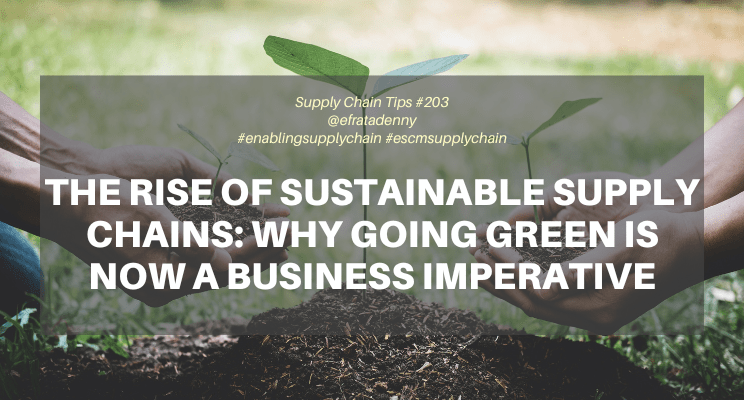
The supply chain industry is undergoing a transformative shift, driven by the rapid adoption of artificial intelligence (AI) and automation. These technologies, once viewed as futuristic, are now central to how businesses operate, making supply chains faster, more efficient, and increasingly resilient in the face of disruptions. As companies look for ways to stay competitive in an evolving global market, AI and automation are emerging as game-changers, reshaping every aspect of supply chain management.
Here’s a closer look at how AI and automation are revolutionizing the supply chain industry and what the future holds for this dynamic sector.
1. AI-Powered Demand Forecasting
One of the most critical areas AI is revolutionizing in the supply chain is demand forecasting. Traditional forecasting models often rely on historical data and manual inputs, which can lead to inaccuracies and inefficiencies. AI, however, can analyze massive datasets in real-time, incorporating variables such as market trends, consumer behavior, weather patterns, and economic indicators to generate highly accurate demand forecasts.
This enhanced level of precision allows businesses to anticipate shifts in demand, optimize inventory levels, and reduce the risk of overstocking or stockouts. As AI continues to evolve, predictive analytics will become even more sophisticated, enabling supply chains to respond proactively to changes in demand patterns and external disruptions.
2. Automation in Warehousing and Logistics
Automation is reshaping warehousing and logistics by streamlining operations and improving efficiency. Automated guided vehicles (AGVs) and robots are now handling tasks like picking, packing, and sorting, reducing the need for human labor in repetitive or physically demanding roles. These technologies not only increase productivity but also minimize the risk of errors and workplace injuries.
Automated warehouses are becoming more common, with AI-driven systems managing inventory placement, optimizing storage, and even adjusting to real-time demand fluctuations. By 2024 and beyond, fully automated warehouses may become the norm, allowing businesses to operate 24/7 with minimal human intervention.
In logistics, automation is also transforming last-mile delivery. Drones and autonomous delivery vehicles are being piloted to speed up shipments, reduce delivery times, and lower costs. These innovations will become more widespread as regulatory frameworks evolve, opening up new possibilities for efficient and contactless delivery options.
3. AI for Supplier Relationship Management
Supplier relationship management (SRM) is a complex and critical part of supply chain operations. AI is playing a pivotal role in improving SRM by providing businesses with insights into supplier performance, risks, and opportunities. AI algorithms can analyze supplier data to assess reliability, delivery times, and compliance with sustainability or ethical standards, helping businesses make more informed decisions when choosing partners.
Additionally, AI can predict potential disruptions in the supplier network, such as delays caused by geopolitical events, natural disasters, or financial instability, allowing companies to mitigate risks before they impact the supply chain. This proactive approach to supplier management enhances supply chain resilience and reduces dependency on single sources, improving overall supply chain stability.
4. Enhanced Supply Chain Visibility and Transparency
In today’s global supply chains, visibility and transparency are more important than ever. Consumers and stakeholders increasingly demand to know where products come from, how they’re made, and whether they’re sourced ethically. AI, in conjunction with technologies like blockchain, is improving supply chain visibility by providing real-time tracking and verification of goods throughout their journey.
AI can track every stage of the supply chain—from raw material extraction to the final product—offering unprecedented transparency. This helps businesses identify inefficiencies, optimize logistics, and ensure compliance with sustainability and regulatory standards. For consumers, AI-powered transparency tools enable them to make informed purchasing decisions, knowing that the products they buy are ethically sourced and produced.
5. Automation in Procurement and Sourcing
Procurement and sourcing are also being transformed by AI and automation. In the past, procurement teams spent significant time managing contracts, evaluating suppliers, and negotiating terms. AI-powered procurement platforms now streamline these processes, using algorithms to identify the best suppliers, analyze pricing trends, and automate contract management.
Automated systems can evaluate supplier bids, recommend cost-saving opportunities, and even place orders based on predefined criteria, significantly reducing the time and effort required for procurement tasks. By automating routine activities, procurement teams can focus on strategic sourcing and building stronger supplier relationships.
6. Supply Chain Resilience Through Predictive Analytics
The disruptions caused by the COVID-19 pandemic highlighted the need for more resilient supply chains. AI and predictive analytics are key tools in addressing this challenge. By analyzing historical data, market conditions, and potential risks, AI can predict future supply chain disruptions and help businesses prepare in advance.
For example, AI can forecast the impact of geopolitical tensions, natural disasters, or shifts in consumer demand, allowing supply chain managers to adjust their strategies accordingly. Companies that leverage predictive analytics can make more agile decisions, reducing the likelihood of costly disruptions and maintaining business continuity even in uncertain times.
7. Sustainability and AI-Driven Optimization
Sustainability is becoming a critical concern for businesses and consumers alike. AI and automation are playing a major role in optimizing supply chains to reduce environmental impact. AI-powered systems can analyze energy consumption, transportation routes, and material use to identify areas for improvement.
For example, AI can suggest more efficient shipping routes that reduce carbon emissions or recommend sustainable materials that meet production needs while minimizing environmental harm. Automation helps streamline processes, reducing waste and improving resource utilization. In the future, AI-driven sustainability initiatives will become an integral part of supply chain management, helping companies meet their environmental goals.
Conclusion: The Future of Supply Chains is Smart, Automated, and Resilient
The future of supply chains is being shaped by the rise of AI and automation. These technologies are revolutionizing every aspect of supply chain management, from demand forecasting and logistics to procurement and sustainability. By leveraging AI and automation, businesses can build more efficient, resilient, and transparent supply chains that are better equipped to navigate the complexities of the modern global market.
As we move into 2024 and beyond, the companies that embrace these innovations will gain a competitive advantage, reducing costs, improving performance, and meeting the growing demands of consumers and regulators. The future of supply chain is here—and it’s powered by AI and automation.














